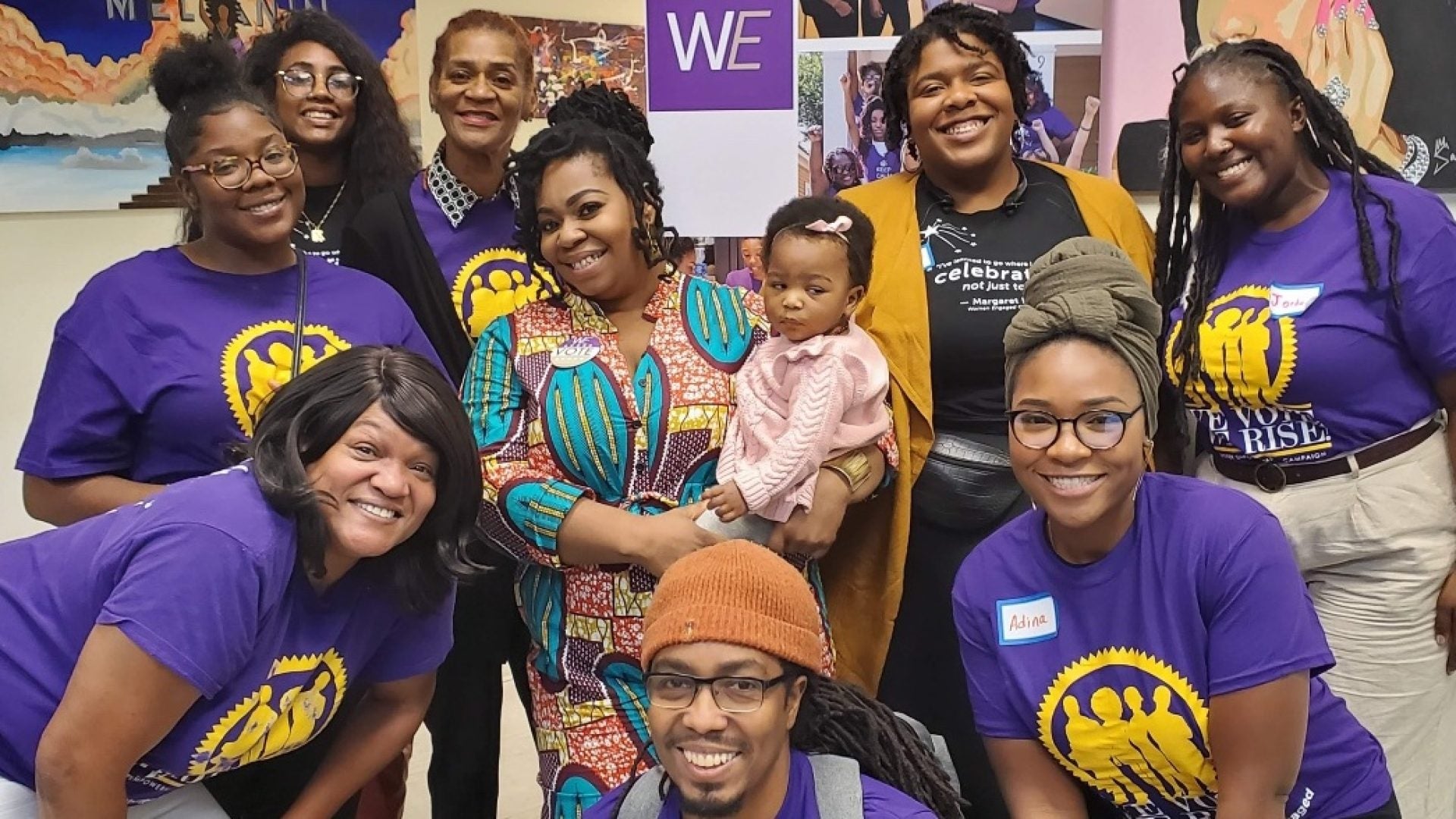
To honor Dr. Martin Luther King Jr.’s holiday, President Biden and Vice President Harris came to Atlanta with an agenda that prioritized speaking to Black voters on the campus of prominent HBCUs and The King Center, signaling the Administration’s commitment to upholding voting rights for the communities who made their victory and the shift in the balance of power in the U.S. Senate possible.
Black women led the efforts to create this historic change for political progress. As we consider the 49th anniversary of Roe v. Wade, the threats to Black women’s rights—from the ballot box to our bodies—are grave. Georgia has taken center stage in both the fights for voting rights and reproductive rights.
We cannot look at these vital civil rights fights as separate crusades, rather we must see them as intertwined paths to justice.
The Voting Rights Act of 1965 is considered one of the most important pieces of civil rights legislation in our country’s history. One can argue that by opening the ability of the entire country to vote, we saw progressive breakthroughs in policy advancing economic mobility and equal opportunity. And less than a decade later came the Supreme Court’s landmark ruling on Roe v. Wade on January 22, 1973 giving women the right to access abortion legally all across the country.
But this right doesn’t mean everyone has access. Roe v. Wade ruling remains a promise that has not been fully realized for Black women. Both the Hyde and Helms Amendments set in motion the strategy of using legislation to weaken the power of Roe and deprive poor women (disproportionately women of color) access to abortion.
Roe v. Wade now sits in a precarious state as the Supreme Court upheld a six-week abortion ban in Texas and has agreed to hear a case on a Mississippi law that bans abortion after 15 weeks of pregnancy. It’s no accident that the fragility of Roe v. Wade is most felt in the South, when we look at the number of aggressive anti-voting and hostile abortion measures that have advanced year after year.
When we limit access to the ballot box for Black women and other women of color, we leave an open pathway to elect more conservative, anti-choice legislators. The results are alarming.
In Georgia, reproductive autonomy for Black women is often first on the chopping block for elected leaders. Following Stacey Abrams’ 2018 loss for governor, a loss that most would argue happened because of voting suppression to silence Black voting voices, the first attack was on reproductive justice. Once in office, Govenor Brian Kemp signed into law the “Forced Pregnancy Bill” six-week abortion ban. Though the law was ultimately blocked by the courts, it demonstrates that such radical legislation is in reach.
Now in the midst of a global pandemic, Georgia leaders continue to leave many people without access to healthcare by refusing to expand Medicaid as promised in the Affordable Care Act. For Black women, often caregivers in the home and working daily outside of the home, this has been particularly challenging along with the depressing high rates of maternal mortality in southern states with the most restrictive abortion laws, combined with even more limited access to care in rural communities.
As evidenced in writings by scholars Dorothy Roberts and Harriet Washington on the history of medical racism in the U.S. and the response by Black women in defining reproductive justice by Loretta Ross, Black women’s bodies have long been disenfranchised from high quality healthcare. Today, Black women are less likely to have health insurance or are under insured, are more likely to be denied coverage for abortion and struggle to access and afford birth control.
When women cannot have reproductive autonomy, their quality of life is forever restricted. More than 59 percent of women who get an abortion are already parents. If Black women are not afforded the right to choose and have control over their family planning, everything—from their education, health and economic stability—pays a price. Access to abortion care and comprehensive reproductive healthcare, can and has saved lives and reduced the number of maternal-related deaths, especially in Black women still navigating a racist healthcare system.
As we move into the election season of 2022, this formula of voting patterns and reproductive justice policies remains but with greater national impact. As we look at how local political maps are drawn and the emergence of “election crime” measures, the race to limit voters of color is in full swing. Federally, the peril for upholding the filibuster and a conservative majority in the Supreme Court are one in the same: stifling voices. Black women are threatened to be kept the most silent. What comes next are the dangerous actions from elected officials to control and harm Black women’s bodies.
These threats and disparities are real. But Black women have always been responding to save our own lives. Through the leadership of women of color, we see points of resilience. Just this week Atlanta’s city council unanimously passed a resolution to support Roe v. Wade after recently establishing a Reproductive Justice Commission. But we need everyone all in. Voters and policy leaders everywhere must commit to ensure a new legacy for generations of Black women in the South and across the nation. To uphold and honor Black women is to push for the change that allows our full voice and choice.
Malika Redmond is the Cofounder and CEO of Women Engaged, a near decade old initiative that develops the civic leadership of Black women, femmes, and girls through year round non-partisan voter engagement opportunities and reproductive justice advocacy. Follow her on Twitter: @malikaredmond @womenengaged